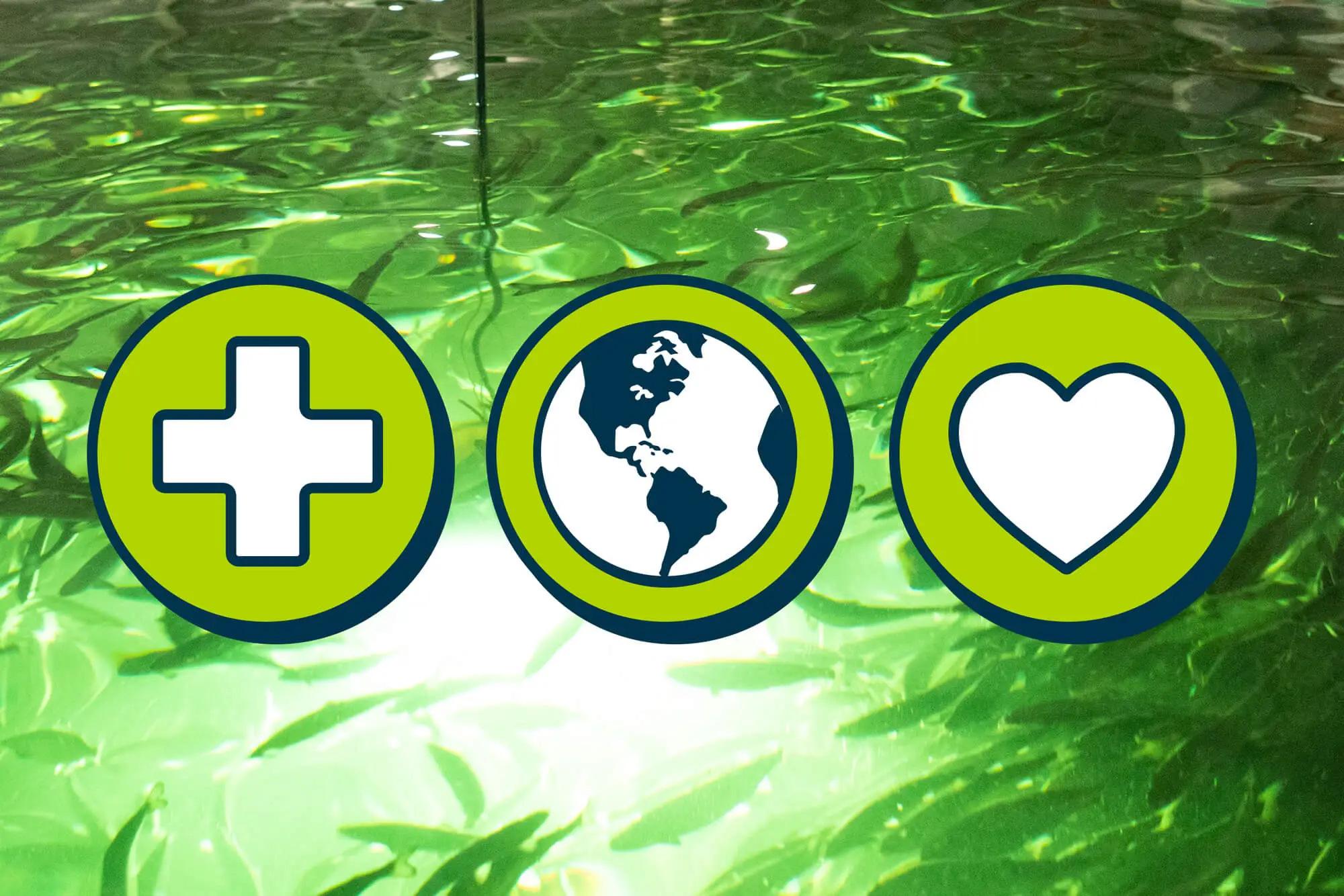
Humane fish treatment supports our physical, environmental and moral health.
Sustaining Human Health
Part three of this series detailed Secret Island’s work to create policies and practices to help sustain our planet. That holistic approach to aligning our business with nature’s plan extends to our company’s product focus. We know that how we raise our food directly affects the well-being of our bodies, world, and ethical standing. Those impacts on our physical, environmental, and moral health reflect the fact that farming any kind of animal comes with an obligation to do so humanely. The triple benefits of doing so are worth a closer look.
A Physical Health Powerhouse
As Secret Island’s health ambassador, Lourdes Castro, states, “Fish contain the fat, protein, vitamins, and minerals that are essential to good health.” Once absorbed, these nutrients work to build muscles and generate the energy that gets us through our day. Excess nutrients are stored for later use. But our body’s ability to retain elements of what we consume can also present a problem by harboring bacteria and other toxins that threaten it. That makes the kind of practices Secret Island employs (detailed later in this post) critical for safeguarding the fish health that supports our own.
A Better Example of Environmental Stewardship
Factory farming practices of the past have caused a host of ecological catastrophes, including deforestation, water pollution, greenhouse gas emissions, and more. As NOAA notes, “Aquaculture offers many environmental benefits relative to other forms of livestock farming.” Its smaller carbon footprint and use of less land and water are two notable examples. And the greater efficiency in converting protein for human consumption explored in part two of this series points to aquaculture’s promise of helping to feed a global population that continues to boom.
Ethical Principles to Inspire Healthy Practices
The idea that the animals we raise for food should be done so while acknowledging and respecting their capacity for suffering and avoiding causing them unnecessary harm first came into focus more than sixty years ago. That’s when Britain’s Farm Animal Welfare Council codified the “Five Freedoms” that have since become the global standard for responsible animal care. The Humane Society of the United States’ report on the “Welfare of Animals in the Aquaculture Industry” cites several scientists’ adoption of these animal rights as the “Five Freedoms of Fish.” A look at each shows how Secret Island works to support all of these critical principles.
1) Freedom from Hunger and Thirst
“Captive fish should have a nutritionally appropriate diet…smolting fish may become dehydrated if transferred to seawater…before they are able to survive.”
Secret Island salmon eat a proprietary all-natural feed mix of ingredients balanced for their essential health. Food is distributed continuously in small amounts at timed intervals, minimizing the stress caused by competing for less regularly distributed meals. And our new post-smolt aquaculture center dramatically reduces the chance of dehydration among smolts. Its 1,250-meter salinity ponds harbor these young fish for an additional two months before their transfer to sea pens. The result is the nurturing of more robust salmon that adapt quickly to the ocean environment.
2) Freedom from Discomfort
“Appropriate water conditions should be provided… Factors to be considered include levels of dissolved oxygen, pH, and ammonia; temperature; flow rates; and the presence of pollutants.”
As noted in part three of this series, Secret Island’s state-of-the-art Recirculating Aquaculture Systems provide exceptionally pure water in our land-based facilities. The stages of mechanical and biological filtration, disinfection, degassing, and oxygenation mirror the optimum quality of what nature provides in the wild. And when mature fish are transferred to the ocean, our high-tech oversight travels with them. Each pen is continually scanned by a bank of monitors controlling feed distribution, visual inspection of fish activity below the surface, and constant measurement of pH and oxygen levels.
3) Freedom from Pain, Injury, and Disease
“…All attempts should be made to limit disease outbreaks, and when disease is found, it should be quickly diagnosed and treated.”
The visual inspection of our stocks noted above is just one of Secret Island’s protocols for disease control. Discretionary use of antibiotics is administered under veterinary prescription as approved by Chile’s Agricultural and Livestock Service. Further oversight is provided by our reports to the National Fisheries and Aquaculture Service and our procedural compliance with the U.N. World Health Organization’s guidelines and federal law. Antibiotic use is suspended before harvest to grant fish enough time to purge the treatment from their system. As a final check to ensure consumer safety, samples are taken and examined in laboratories to ensure that harvested salmon are free of any trace antibiotics. And that scrutiny extends throughout production by our compliance with strict food safety standards. These are certified by both third-party audits and a Hazard Analysis and Critical Point System that identifies, evaluates, and controls potential hazards throughout the entire food production chain.
4) Freedom to Express Normal Behavior
“Appropriate densities and environmental conditions to enable the fish to exhibit natural behaviors should be maintained throughout the life cycle.”
The image of fish packed into open ocean pens to maximize profit with little regard for their welfare or the health of those who consume them has long tainted the entire aquaculture industry. Less scrupulous and educated operators may have earned that reputation in the past, but those committed to a more sustainable future are changing the game.
Oceana, a non-profit “dedicated to protecting and restoring the world’s oceans on a global scale,” recently “applaud(ed) Maine leaders” for passing a law that establishes a stocking density of 30kg/m3 for all future marine salmon (or 30 kilograms of salmon per cubic meter of water). A recent peer-reviewed report in the science journal Frontiers suggests that standard should be even lower, stating that Atlantic salmon’s densities of about 26.5 kg/m3 can cause decreased growth rate, feed intake, and feed utilization” in open net pens. But as noted in Secret Island’s parent company’s 2020 Sustainability Report, the 40×40 pens used in three of our ocean facilities reduced crop density by more than three times that amount three years ago. Our average of 8 kg/m3 for these pens means that even two fully-grown adult salmon have the freedom of movement to keep them happy and healthy in the cubic meter of water they share.
5) Freedom from Fear and Distress
“Factors that cause fear, distress, discomfort, and other welfare-impairing conditions should be minimized.”
Details in our latest Sustainability Report and advances implemented in the Cochamó aquaculture center noted above reflect just some of the ways Secret Island is leveraging technological innovations to protect our stock from fear and distress. They include use of ultra-high molecular weight polyethylene materials in the nets that secure our salmon in ocean pens. The high strength of this low-weight material makes an effective barrier against sea lion attacks, while its surface resists cutting and rubbing against the skins of the fish it protects.
Bio-secure deep water wells in our Cochamó facility with different temperatures and salinities provide the incoming water sources for our stock. These variables reduce fishes’ stress by emulating the conditions found in their natural environment. And when it’s time to transfer these grown smolts to our sea centers, the well-boats we use reduce the need for additional handling that can also put a strain on them. In both cases, these salmon enjoy better resistance to illness and disease.
The humane practices noted above present just some of the ways Secret Island works to bolster the link between the health of our fish, customers, and planet. Our final post in this series will look at how our company and other advanced aquaculture businesses continue to work toward the holistic health of all.
